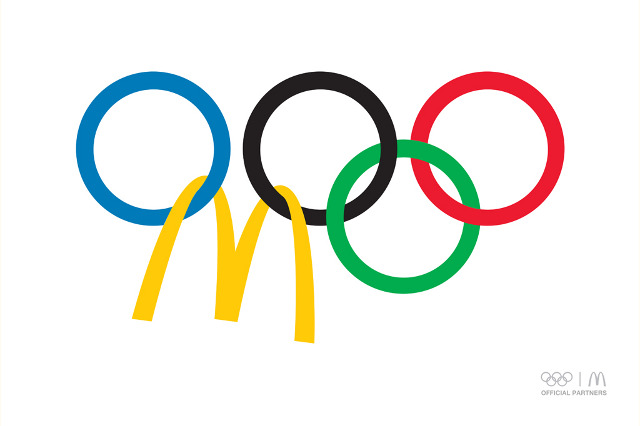Search
Democracy Links
Member's Off-site Blogs
parody of the year .....

It is billed as the greatest show on earth. But the closer you get to the London stadium that will be the centre of the Olympic Games in just over a fortnight, the more it's starting to look like a militarised occupation zone.
East London has become lockdown London. The Olympics are the focus of Britain's largest security mobilisation since the Second World War.
Soldiers are already on the streets. About 13,500 are being deployed, more than in Afghanistan, along with tens of thousands of police and private security guards. Drones will patrol the skies over the Olympic park, which is barricaded behind an 18-kilometre electrified fence and guarded with sonic weapons and 55 teams of attack dogs.
The greatest local outrage has, not surprisingly, been triggered by the decision to site surface-to-air missile batteries, with orders to shoot down unauthorised aircraft, in six residential areas around the park.
Of course, if the state hosting the Olympics is in the habit of invading and occupying other people's countries, the likelihood of terrorist attacks will increase. And since the killing of Israeli athletes in Munich 40 years ago, Olympic security has been tight. But the scale and visibility of the London operations, including powers to crack down on protests and remove critical posters from private homes, go beyond the demands of any potential threat.
It's a long way from the Olympic ideals of promoting peace, internationalism and participation through sport.
As one local resident put it: ''People round here feel that the Olympic stadium landed from another planet.'' Nor is it likely to attract tourists. Securitisation is sucking enthusiasm out of the Games: recent polling shows a striking lack of support - 49 per cent of people in London and 53 per cent in the rest of the country say they are not interested in the Olympics.
No doubt that will change once the athletes take over. But given the snaffling of most of the best tickets by sponsors and Olympic officials, along with the daily affront of VIP lanes for fleets of chauffeur-driven cars, many Londoners are bound to see the Games as having very little to do with them.
And they'd be right. The funding may come overwhelmingly from the public, but it's private corporations that are calling the shots. Private sponsorship of the Olympics goes back decades, but the corporate takeover dates from the Los Angeles Games in 1984, during the heyday of Reaganomics. In London they have Coca-Cola, Cadbury, Heineken and McDonald's sponsoring and branding a movement that is supposed to promote health in a country where one in three children are overweight or obese by the age of nine.
Compensation for the corporate and security takeover is meant to be a lasting legacy of trickle-down regeneration, jobs, housing, tourism and greater participation in sport. That's always the promise, from Atlanta to Athens. But the evidence shows, with the exception of Barcelona in 1992, it never happens. In some cases, the economic impact has been negative.
The early signs are that London is unlikely to buck the trend.
It is clear the International Olympic Committee model does not work, even on its own terms. But as enthusiast Mark Perryman says in his new book on the Olympics, it doesn't have to be like this. Five key reforms would transform the Games, he argues, cut its cost and make the Olympic ideal more of a reality, in place of the tightly controlled corporate ''mega event'' of the next few weeks.
Decentralise the Games by holding them in one or more countries, he proposes, rather than a single city; increase public participation (now restricted to a fleeting glimpse of the torch relay) by using existing venues that maximise available tickets; move sports outside stadiums to increase the number of free-to-watch events, on the Tour de France model; choose sports on the basis of their global accessibility; and disconnect corporate sponsors from the heart of the Games by reserving the use of its five-ring symbol for community and voluntary groups.
It's too late for London to have such a Games - though not for Rio de Janeiro in 2016, currently heading down the same road. And the gravy-train committee-elect will see no reason to abandon a model they do nicely out of without serious global pressure for change.
But the Olympics, as with sport in general, holds up a mirror to society. What is being played out in London reflects a legacy of the war on terror and deregulation of unbridled corporate power - both elite blunders that ended in failure. If those disasters can be overcome, why should it be impossible to end the corporate grip on the Olympics - and create a Games that lives up to its billing?
- By John Richardson at 13 Jul 2012 - 5:43pm
- John Richardson's blog
- Login or register to post comments
Recent comments
6 hours 37 min ago
8 hours 30 min ago
9 hours 33 min ago
10 hours 5 min ago
10 hours 42 min ago
11 hours 7 min ago
11 hours 17 min ago
12 hours 29 min ago
14 hours 51 min ago
1 day 37 min ago